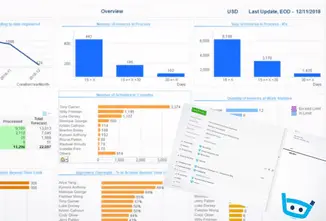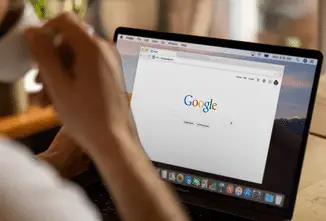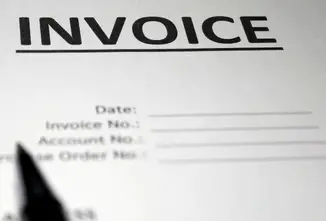6 YEARS! You can chase an unpaid invoice for up to 6 years.
Even under a simple contract, you have the legal right to chase a debt for up to 6 years. This includes following up with the client for payment, and even any legal proceedings that may be issued against the client for non-payment.
Maintaining a healthy cash-flow is one of the essentials of running successful operations. Unfortunately, what can make that difficult is unsettled debts.
When you have provided satisfactory service to a client, it is your right to demand and receive payment for that work. Unpaid invoices cause a lot of problems, and you may even need to report different types of invoices.
Fortunately, the 1980 Limitation Act has got you covered. Under this Act, you can chase an unpaid invoice for up to 6 years. This official ruling is followed in the UK, which allows creditors to follow-up on their unpaid debts for up to six years after they were first issued.
This includes the date on which the product or service for which payment is demanded was first provided.
Consider this restriction a statute of limitations of sorts.
Any payments by the client towards resolving the debt within this six-year period can potentially extend this limit as an acknowledgement of the debt. Chasing a debt you are owed might not feel like a particularly pleasant task.
But it is essential for you to maintain your business, and keep everyday operations running. You also need to maintain a reputation for not allowing debtors off; otherwise, you might expect to be chasing many more unpaid invoices in the future.
Important caveats to the 6-year-old invoice rule
As with other laws and sanctions, the 6-Year Invoice Rule under the Limitation Act comes with certain caveats you should be familiar with.
These monitions grant exceptions to the rule, where it becomes inapplicable. In such an instance, you may not be able to chase an invoice, and may have to declare bad debts.
One of the first things you’ll need to look out for is maintaining regular contact with your debtor.
What this essentially requires is following-up on the invoice with the client. When chasing an old debt, you must be able to prove that similar efforts have been made in the past before. This will work towards improving your credibility and strengthening your case.
Keep in mind that if no contact was made or established between the debtor and the creditor over the past 6 years, the debt can no longer be chased.
The more time that passes before a debt is chased, the easier it becomes for it to be disputed.
In such a case, there exists a possibility that the debtors argue that they never received the goods or service they are being charged for. They may even make a false claim of receiving them faulty or incomplete.
To prepare for such a possibility, make sure you have the relevant paperwork at hand. These can include delivery notes and confirmations- any official documents that back your position.
Finally, when deciding to chase a debt, even with a cooperative debtor, do not expect things to happen immediately. When years pass for an issued invoice being chased, changes amongst company systems and personnel can cause some delays.
Before you decide to report late invoices, allow your debtors some time to access their records and get back to you.
What is the legal time limit for invoices in the UK?
Old or unpaid invoices remain valid for up to 6 years in the UK.
Based on the 1980 Limitations Act, invoices remain valid and must be settled within this time limit. An acknowledgement of the debt can extend this period.
This can include any amounts paid out in the settlement of the debt.
Outside of this limitation, companies are not bound by any time limit in the issuing of an invoice. The amount of time that is available for making the payment also depends on the type of invoices issued.
Most invoices clearly state the time period within which payment should be expected. Invoices also often carry warnings or penalties for late payment. To avoid the matter of chasing and reporting unpaid invoices, they also limit the time within which an invoice can be contested.
You can also report late invoices with brodmin. We can help you resolve your issues by listing late-paying clients on a public directory.
How long do you have to pay an invoice?
You are required to pay within 30 days of receiving the invoice when there is no payment date specified by the business on the invoice or discussed beforehand.
Under the 1980 Limitations Act, you can be chased for unpaid invoices for up to 6 years. Businesses can report late invoices and take legal action against you within that period.
How long you have to pay an invoice also largely depends on the company that issues the invoice. Businesses can and do often set their own payment dates and terms on invoices.
Often, businesses will offer special discounts, especially on large invoices, for early payments.
These exist simply to encourage timely payments.
Generally speaking, invoices you receive for services rendered would also include the date by which payment is expected, just as invoices for products or commodities sold would.
Your invoice should also clearly mention any other terms and conditions that apply to the payment, such as discounts on early payments or late fees.
How long does a company have to invoice you for services?
Invoices should be issued within a duration of 30 days after a company uses your services.
Ideally, invoices must be issued as soon as the product is delivered, or the service is completed. However, sometimes, owing to some processing delays, this duration can be exceeded.
These regulations pertaining to the time limits of the issuance of invoices can be found in the Limitations Act 1980. Under the act, if an invoice has gone unaddressed for 6 years or more, it must be written off.
That is to say, if there has been no contact or payment between a company and their client for that time period, the invoice no longer needs to be paid.
Delays can sometimes occur, usually because of simple oversight. It is unlikely companies would simply forego payment for their services. You might also feel tied up with the delay, as you cannot pay them for their work without an invoice.
In such a case, you can always send a follow-up email requesting an invoice so you can settle your books. This should reduce future headaches for both you and the company. They would also probably appreciate your willingness to follow-up on due payments.
How long can a company chase a debt?
Companies can chase a debt for up to 6 years.
Such debts are known as statute-barred debts. This clock on chasing debts resets from the last payment or acknowledgement of the debt. This means that regardless of when it was acquired, your last payment can reset the limit.
In the event that no communication has occurred between the debtor and the company over the past six years, the debt becomes invalid. This applies to outstanding invoices issued by the company to the debtor for services rendered.
When there is no established contact, the debt is nullified. Another exception to the Limitation Act of 1980 occurs when legal action is taken against the debtor.
If a company is to report late invoices and register a case for a County Court Judgement (CCJ), the time limit ceases to apply. Such a judgement can be enforced at any point beyond the 6 years.
How long can you be chased for a debt?
You can be chased for a debt for up to 6 years in the UK. The Limitation Act of 1980 gives a creditor up to 6 years to collect on the unpaid debt.
After this period, if the debt isn’t acknowledged by either party, it becomes statute barred. This means it is no longer subject to legal action and is written off.
Companies may sometimes be willing to write-off smaller debts. This is usually when the cost of chasing them is higher than the outstanding amount. However, large debts may be harder to forgive. It is within a company’s rights to chase an unpaid debt. They are also entitled to report late invoices and take legal action against the debtor.
The Limitations Act, however, does not apply when certain criteria are met.
One of these is when a County Court Judgement (CCJ) is registered against you by creditors. A CCJ automatically annuls the limitation, extending it over an unspecified period.
There should also have been no payments made out or acknowledgements of the debt. Under these circumstances, the debt becomes invalid. While it would still exist, it would not need to be paid out.
Are invoices legally binding?
Invoices themselves do not qualify as legal documents. For this reason, they are also not legally binding. For a document to be considered legally binding, all involved parties must agree to its terms.
As invoices leave too much room for manipulation, they do not offer legal footing. However, they are integral if you want to chase payments.
Invoices are, however, an important accounting practice for businesses. They provide confirmation for all the goods and services provided to a client, as well as the amount owed, acceptable forms of payment, and other related information.
Because of their hazy legal status, companies often consider contracts as confirmation of transactions with clients. This can be especially important with transactions involving larger amounts.
Such a contract can be officially drawn up, or can simply involve signatures from both parties.
Documents that show both parties consent to the terms laid out are binding and can be used as a basis for legal action should the need arise. With signed contracts, it is also less likely that a debtor would try to avoid payment.
How to chase unpaid invoices
The process can involve several steps. It requires you to be persistent and patient. In ideal conditions, you would not have to chase unpaid invoices at all.
Even where an invoice goes unpaid beyond the due term, it can often be chalked up to simple forgetfulness on the client’s part. Such matters are easily resolved with a few follow-ups.
Where you do end up having to chase a debt, there are certain strategies you can follow to receive payment. Before you become worked up about a late payment, allow your clients some benefit of the doubt.
After it is possible the late payment is simply due to forgetfulness on their part.
Try not to jump to conclusions about their intentions and give them some time. Send them a polite reminder for the outstanding invoice and see where the matter goes. With any luck, your issue should be resolved at this stage. However, if it does not, you might have to take the legal route.
Sample Email Reminder:
An email reminder you send before issuing a legal notice can look something like the following.
Subject: [Your business’ name]: invoice [invoice reference number]
Hi [Recipient’s name]
This is to remind you that payments against [enter invoice number] for the amount [amount owed as per the invoice] are still unpaid. The due date for payment mentioned on the invoice was [date due].
I request an update as to when I can expect to receive payment.
Thank you.
[Sender’s name]
There is every chance that emails are simply missed. If you do not receive acknowledgement for your email soon, you can try making a phone call.
You can speak directly to the people in charge of settling the debt. Try and get a time-frame by which payment can be expected.
If the matter remains unresolved, you can escalate with a formal legal notice.
This is usually sent in writing in physical form. This is a much more serious demand for payment, and therefore, harder to ignore.
Sample Letter
If you are afraid that your email will get ignored, a written letter may be a good choice. Consider the following sample.
[Your address]
[Date of writing the letter]
[Company’s address]
Subject: [Your business’ name]: invoice [invoice reference number] OVERDUE
[Salutation]
This is to remind you that payments against [enter invoice number] for the amount [amount owed as per the invoice] are still unpaid. The due date for payment mentioned on the invoice was [date due].
This invoice is now [number of days overdue] days overdue. This is the last reminder before legal proceedings start.
I request a prompt update as to when payments can be made.
Thank you.
[Sender’s name];
When the issue persists beyond this point, it may be time to involve other parties.
One option is to reach out to a debt collector. They will chase the debt on your behalf. this will usually cost you a percentage of the settled amount.
You could also charge late payment fees or interest as penalty. These can also be stated on the original invoice so a client knows the cost of late payments.
You can also report late invoices on public directories such as brodmin. The exposure may encourage your debtors to settle quickly.
As a last resort, you can also take legal action against the debtor.
You can report late invoices with a County Court Judgment (CCJ). As such judgments affect credit, they quickly grab a debtor’s attention. However, remember to only use this as a last resort.
Try other methods first, and make an effort to resolve the issue directly with the client.
FAQs
Can you refuse to pay old invoices?
You can refuse to pay old invoices when the 6-year term has expired. If no contact or payments were made during this period, the invoice becomes statute barred. You can also refuse payment on the grounds of unsatisfactory or incomplete service. However, you cannot simply refuse an old invoice due to its age. If the 6-year term holds, you will be required to settle your outstanding debt. If you refuse payment because of any valid reason, you can face legal proceedings.
How long do you have to dispute an invoice?
You must dispute an invoice within 30 days of it being issued. Some businesses list a clause on the invoice that dictates that any issues should be brought forward within a specific time. This is done to avoid late payments and to limit the hassle of resolving issues. In such a case, any disputes brought after the specified time become invalid. You would be required to pay out the due amount in full, regardless of the service you received.



![How to write past due invoice emails that work [+ tips & templates] 4 How to write past due invoice emails that work](https://brodmin.com/wp-content/uploads/2022/04/How-to-write-past-due-invoice-emails-that-work.webp)
![How to invoice international clients [+ 10-point checklist] 5 Invoicing international clients](https://brodmin.com/wp-content/uploads/2021/10/Invoicing-international-clients-0.webp)






